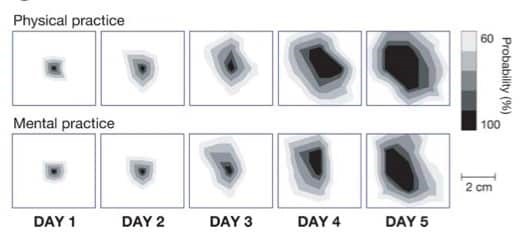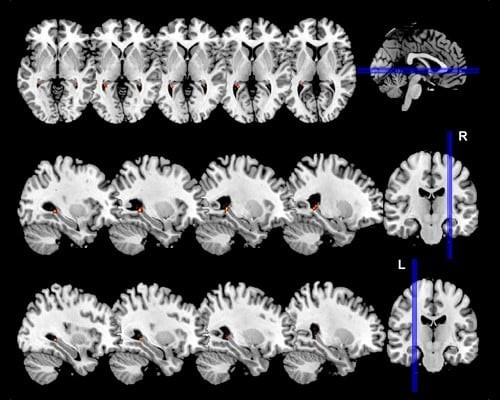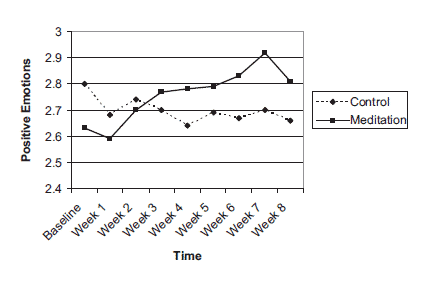In a study published in 2010, which was conducted in Dunedin, New Zealand, researchers followed kids between the ages of four and eight and tested them thoroughly on cognitive control. The researchers then tracked the participants down when they were in their 30’s and found that those with better cognitive control as children also enjoyed greater financial success and better health than those who tested poorly. Their main conclusion was that the ability to focus was a very strong predictor of life success– stronger than childhood IQ or wealth and status of child’s family.
But how do we train our ability to focus?
In his book Tools of Titans, Tim Ferris recalls the big lessons from interviewing nearly 200 world class performers on the Tim Ferriss Show, which have been downloaded over 100,000,000 times. He discovered certain patterns.
For example:
- A surprising number of males over 45 do not eat breakfast.
- Many listen to one song on repeat to enhance their focus.
- Almost every guest has been able to turn an obvious weakness into a huge competitive advantage.
- Many raves about the book, Man’s search for Meaning by Victor Frankl.
There was one habit that more than 80% of these high performers practice daily.
Can you guess what it was?
Let me help you:
- It is a practice that helps people become super focused.
- It helps us feel more relaxed and calm.
- It even strengthens our immune system.
Any clue yet?
Ok let me tell you:
It was the daily practice of meditation or some form of mindfulness.
Why is meditation so powerful?
We know that our brain is our most valuable asset!
It consists of over hundred billion nerve cells, with each neuron connected to thousands of other neurons. To write down all the zeros that would define the number of possible brain connections would take around 75 years.
Our brain controls also everything we do and does over quadrillion operations per second.
This is why we work best when our brain works right.
At the same time, consider this!
We average about 60,000 thoughts a day.
These thoughts trigger feelings which define our actions and therefore our life.
However, for most people, almost 95% of our thoughts are invisible, repetitive and often negative.
This is why changing our behavior can feel so challenging.
But here some good news:
Anyone of us can learn how to become more focused, and even consciously strengthen our brain. This is because, in contrast to what people used to think, our brain is extremely malleable, regardless of our age.
This was demonstrated in a study led by Alvaro Pascual-Leone:
Here is what he did:
Half a group of volunteers learned a simple 5-finger keyboard piece, practising it repeatedly for a week with their right hand. The second half of participants only imagined playing the same notes.
When the researchers measured the region of the brain that controls the fingers of the right hand, they noticed that in both groups it had expanded. In other words, thinking alone increased the amount of space the motor cortex had devoted to the specific function of moving those fingers.

In another study with London Taxi drivers, who are known worldwide because they must learn the names and locations of all the streets of their city, researchers compared the brain sizes of the cabi’s before and after their training.
What they found was that the part of their brain responsible for memory (Hippocampus) grew bigger over time.
Again, by consciously memorizing locations they literally transformed part of their brains.

MRI showing growth (left to right) of the hippocampus in taxi drivers – image courtesy of Eleanor Maguire, Wellcome Department of Cognitive Neurology, University College London
So what do all these studies tell us?
With the help of focused attention, we can improve vital skills and even change the physical structure of our brain. At the same time, we must also remember that we can strengthen negative behaviors and thought patterns if we allow our mind to do whatever it wants.
This is why it is so important to train our brain in the same way we would train our body.
One of the scientifically most effective ways to strengthen our brain comes from the practice of daily meditation. This is how we can constantly improve our ability to pay attention and disconnect ourselves from our many daily distractions and negative thoughts.
To prove this claim, a scientist called Pagnoni compared twelve Zen meditators with twelve novices who had never practised any meditation.
As the volunteers had their brains scanned, they were asked to focus on their breathing.
Once in a while they would be required to distinguish a real word from a nonsense word displayed randomly on a screen, and then asked to immediately return back to focusing on their breathing.
The scans revealed that after being distracted, Zen meditators brains returned their attention faster back to the breathing, than the novices.
Pagnoni concluded:
“The regular practice of meditation may enhance the capacity to limit the influence of distracting thoughts.”
Pagnoni then tested subject’s ability to focus using what is known as the rapid visual information processing test.
In that task, subjects were asked to look at a computer screen while numbers flash rapidly in random order. The goal was to press a button anytime one of three target sequences appeared.
For example, one target sequence could be 1-3-5.
So as the volunteers watched the numbers fly by, like for example 1-5-1-3-5, they were asked to hit a button as soon as they saw the target sequence. They had to respond quickly and avoid making mistakes to get credits.
As expected, the meditators outperformed the novices on the task, spotting more target sequences and making fewer mistakes. MRI scans revealed that meditators enjoyed greater stability in their vetal posteromedial cortex, a region linked to spontaneous thoughts and mind wandering. This probably explains why they were able to quiet brain activity related to mind wandering and spot more target sequences while committing fewer errors.
But that is not all!
Meditation can trigger so many other benefits in a relatively short time.
In one study by Jon Kabat-Zinn revealed that just meditating for 15 minutes a day, for an 8 week period, resulted in lower feelings of anxiety and better moods.

In another study conducted with the help of the Dalai Lama, the brains of some of the most experienced meditators were scanned. The fascinating finding was that they had a much higher left to right prefrontal cortex ratio, which is one of the most objective ways to measure the degree of happiness that people experience.
In short, meditation can also help us:
- Cope better with stress.
- Reduce symptoms of anxiety.
- Improve our sleep and general well-being.
- Feel happier.
And the best part is that meditation neither needs to be difficult, nor long.
How can we start the practice of meditating?
The truth is that meditation can be very simple:
All you need to do is follow these two steps:
- Find a quiet place where you can, sit for say 5-10 minutes in the beginning.
- Take a moment to relax, close your eyes and focus on your breath.
So if meditation is that simple and carries so many benefits, why don’t we all meditate on a daily basis?
Ok, I must admit, in the beginning, I struggled sitting still by myself. Thoughts kept popping up, which apparently is completely normal. But over time, it becomes much easier.
The key is to persist until we form a habit.
This is easier said than done because it is so easy to forget your daily practice and once that happens, it is often challenging to get started again.
So here is how you can integrate meditation into your life, and make it part of your lifestyle.
For the next 30 days, you want to attach the practice of meditation to a trigger from your existing daily habits:
For example, you could choose to meditate after you brush your teeth, or after coming out of the shower.
In the beginning, this will require your conscious effort. Therefore I recommend you set yourself additional daily phone reminders.
Over time, your brain will connect these two activities, so that every time you do one habit ( eg brushing your teeth), you will remember to meditate.
Let me give you a few additional tips to help you get started on the right foot:
To keep things simple, I would start with 5-10 minutes of daily meditation and gradually increase to a practice lasting 20 minutes.
Also, remember to be patient with yourself:
For example, whenever you feel distracted, don’t get upset. If it helps, you can repeat a mantra or count “1” for each in-breath and “2” for each out breath until you feel at ease again.
The important thing while meditating is to never judge yourself.
To really help you follow through with your daily meditations, I recommend you track your progress with a simple spreadsheet and tick off each day in which you complete your meditation. In this way, you can see your progress, and hopefully build momentum when things are going well, or recommit to your practice when you see that you are going off track.
Finally, you want to make sure you reward yourself after each meditation:
Meditation takes practice, so you should pat yourself on the shoulder after each completed session, and allow yourself to feel satisfied with your achievement. Also, pay attention to how you feel after your practice, and enjoy the benefits for a few minutes, before rushing to your next activity.
Now I know this is a lot of information:
If you want more tips on meditation, check out this clip from Headspace. They also offer 10 days for free, and that will give you a great idea what meditation is about.
But let me summarize the most important message today:
- You have everything you need to get started with meditation.
- You know it is one of the most powerful routines as it will help you feel calmer and relax, increase your ability to focus and concentrate, and it will improve your health and personal well-being.
- Only ten minutes a day will allow you to start reaping these benefits.
So just give it a try, and commit to meditating for the next 30 days. And let me know in the comment section below if you have any questions or feedback related to building this new habit.